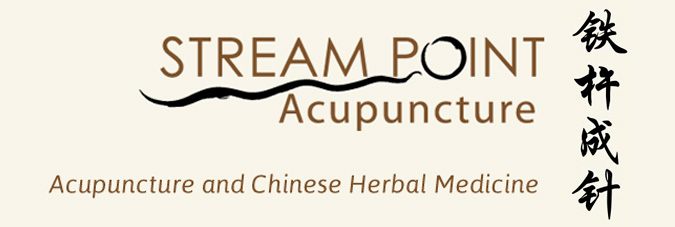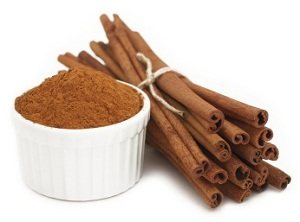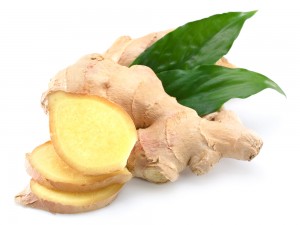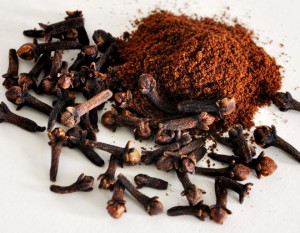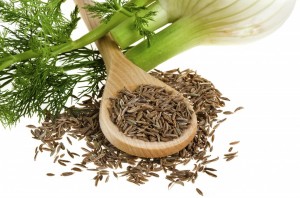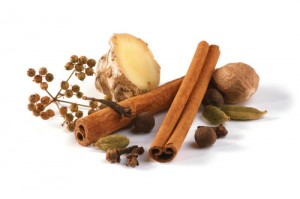In keeping with the theme of promoting strong immunity for the impending months, this week’s blog is dedicated to the healing benefits of common herbs and spices that are especially healing right now.
This common brown powder often sits on the spice rack in most of our kitchens, and most of us only think of this ancient spice as a flavor to add to pie and cocoa. But cinnamon is more than just a flavor enhancer; it holds a plethora of health benefits and has been used in the most ancient of healing systems for thousands of years.
Cinnamon is derived from the bark of the cinnamon tree, which commonly grows in South Asia and Middle East, making it a staple in Ayurveda and Traditional Chinese Medicine. Ayurveda uses cinnamon for its warming and energizing effects. Traditional Chinese Medicine (my forte) uses two types of cinnamon in herbal prescriptions. The first is called “Gui Zhi” which is the cinnamon twig, and is used in one of the most common formulas, Gui Zhi Tang, for the initial onset of the common cold. It promotes sweating to release the cold from the body while also harmonizing the energies in the body to stay strong and nourished. Cinnamon Bark, called Rou Gui, is used for more intense “cold” imbalances, often called “yang deficiencies”.
Western medicine also embraces cinnamon. In 1918 workers in cinnamon factories were seemingly immune to the devastating Spanish Flu. Today, cinnamon is being heavily researched as a possible antidote for serious diseases like Avian Flu and HIV. Cinnamon also appears to have the ability to inhibit the growth of harmful bacteria, molds and yeasts, including Candida yeast. Other cinnamon research shows possible benefits for balancing blood sugar and body fat.
So, next time you’re leaving the coffee shop, enhance your drink (and your health) with a few dashes of cinnamon!
Ginger is another very common herbal remedy for “cold” conditions with its pungent and spicy aromas. In TCM, ginger is prescribed in multiple ways. Fresh ginger (Sheng Jiang) is often used with cinnamon for the common cold, but focuses more on warming the GI tract to help digestion, though it also warms the lungs to alleviate coughing. If you’ve ever been to a sushi restaurant, you’ve seen the little slices of pickled ginger that accompany your meals – this is to balance out the cold nature of raw fish and keep your belly warm and happy. Personally, I’m a big fan of using ginger in my hot sake for a warm and pungent drink.
Dried Ginger (Gan Jiang) is “hotter” in nature than Sheng Jiang and, like cinnamon bark, is used for more serious cold conditions. It’s regarded both as an excellent agent for eliminating intestinal gas and soothing the intestinal tract from spasms. Ginger also has excellent antioxidant and anti-inflammatory effects. In a nutshell, ginger can be used for reducing almost any digestive symptoms like nausea, vomiting, cold sweats, and motion/sea sickness. And it’s even safe and effective to use during pregnancy for bouts of morning sickness!
Cloves are another favorite spice of mine, both because they smell great and like cinnamon and ginger, come with a host of benefits. Cloves, like cinnamon and ginger, are “hot” in nature and are great for cold conditions. In traditional Chinese medicine, cloves (Ding Xiang) can help with hiccoughs, poor appetite, nausea, diarrhea and muscle weakness. Cloves also contain a rather large amount of a substance called eugenol, which has been shown to prevent toxicity caused by some environmental pollutants as well as a strong anti-inflammatory. Cloves also have a mild anesthetic and antibiotic effect, so many natural food stores will sell clove oil spray for a sore throat remedy.
Fennel is the last, but not the least, common herb for cold-type imbalances. This licorice-flavored herb is specifically used for hernias and has been traditionally used as a compress for hernia pain. These compresses can also be used for alleviating pain the lower abdomen from both digestive and OB-GYN conditions. Fennel is also very high in phytonutrients and is an excellent source of vitamin C which is great for the immune system. I’m a big fan of using fennel bulbs in my crock pot stews.
*************************************************************************************
There are hundreds of herbs, spices, and formulas that are great for keeping the body healthy and warm during the cold seasons. These are just a few of my favorites. Stay warm everybody, and Be Well!
http://www.whfoods.com/genpage.php?tname=foodspice&dbid=72
http://www.whfoods.com/genpage.php?tname=foodspice&dbid=68
http://www.acupuncturetoday.com/herbcentral/cloves.php
http://www.whfoods.com/genpage.php?tname=foodspice&dbid=23

